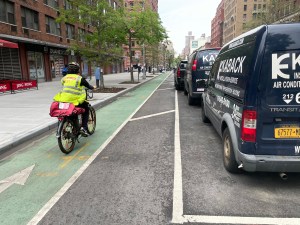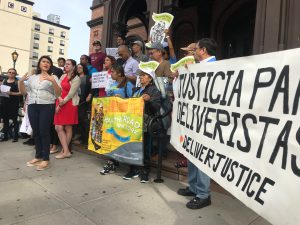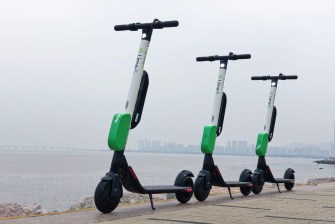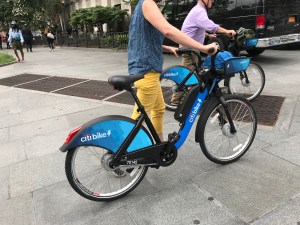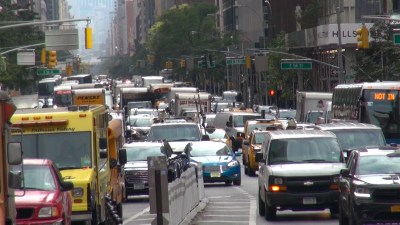Manhattan is Blocking E-Scooter and E-Bike Legalization
The borough's elected officials reportedly spurred the decision to take e-bike and e-scooter legalization out of the budget pending further review.
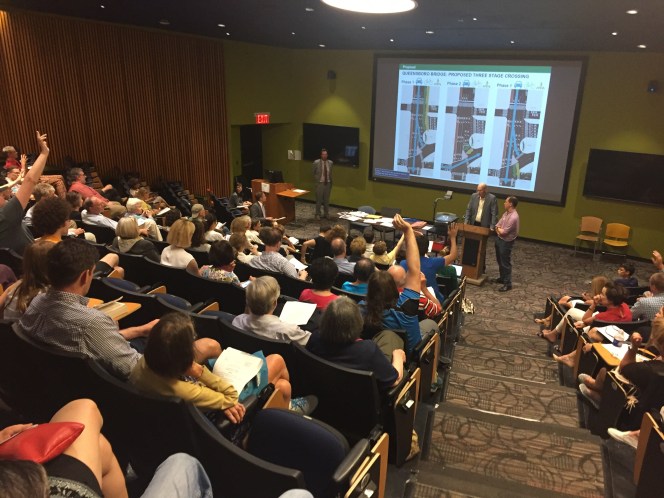
The push to legalize e-scooters and e-bikes has hit a pothole: the borough of Manhattan.
Manhattan representatives are apparently the reason legislators opted to table Governor Cuomo’s plan to allow localities to decide for themselves about the legality of the vehicles, a plan that was included in his proposed executive budget, but quietly removed.
New York City legalized pedal-assist e-bikes through the city’s rule-making process last year, but throttle-controlled e-bikes and e-scooters remain illegal under state and city law. Until the state acts, a city council bill that would legalize the vehicles remains stalled, putting workers who use them at risk of hefty fines and penalties.
Vocal opposition makes the future of the vehicles even more uncertain: No less than three Manhattan community boards have passed resolutions opposing the Council bill and questioning the logic of legalizing them in tandem with e-scooters.
Community Board 4, representing Chelsea and Hells Kitchen, favors e-scooter legalization, but has a laundry list of conditions related to rider education, top speeds, and ensuring the vehicles are used and parked on the street and not the sidewalk. The board opposes the presence of throttle-powered e-bikes in bike lanes and wants them treated as mopeds (i.e., with mandatory licensing.) [PDF] Community Board 2 in the West Village passed a resolution with similar conclusions.
The Upper East Side’s CB 8, meanwhile opposes both e-scooters and throttle-powered e-bikes. Its resolution suggests the e-scooters have a “high injury rate,” even though the data is inconclusive. The board justifies its opposition to throttle e-bikes on the grounds that the vehicles are “perceived as a serious threat” — implicitly admitting that there is no data to support the assertion that e-bikes are any more dangerous than regular bicycles. Mayor de Blasio often speaks of the perception of danger from e-bikes, yet never provides statistics to back up his fears as he orders the NYPD to seize delivery workers’ bikes, costing the workers several weeks’ pay.
At the same time, however, boards are grappling with the concerns for worker rights. Amid the ongoing crackdown, CB 8 did at least call on the city to restrict penalties to employers and endorsed reducing the fine for e-bike use from $500 to $100. CB 4 and CB 2 similarly nodded to the concerns of working e-bike users. All three boards endorsed council legislation requiring the city to provide funding and support for delivery workers to convert their throttled-powered bikes to pedal-assist.
“We encourage the Council to pass laws to raise bike delivery workers wages and mandate delivery charges — as the Council did successfully with Uber drivers and restaurant workers, rather than by legalizing excessively fast vehicles driven by unlicensed operators in bike lanes, where they do not belong,” CB 4’s resolution reads.
With budget season in the rearview mirror, advocates expect Senator Jessica Ramos and Assembly Member Nily Rozic to introduce new stand-alone e-bike/e-scooter legislation in Albany. Public hearings are expected.
Bird and Lime, two of the e-scooter companies hoping to enter the New York market, have spent big on lobbying at both the state and city levels, according to filings with the state’s Joint Commission on Public Ethics. Bird has spend the most, paying a handful of lobbyists — including Tusk Strategies, MirRam Group, and Michael Woloz — $77,856 so far this year.
Krueger is a long-time e-bike foe. In 2012, she supported Council legislation that would have raised the fine for riding an e-bike to $1,000. But she’s hardly alone among elected officials representing Manhattan: In the Council, Helen Rosenthal, Corey Johnson, Keith Powers, Ben Kallos, and Bill Perkins have opted to co-sponsor only legislation piloting scooters in the outer-borough, and not bills permitting e-bikes and e-scooters use citywide.
Officials are caught between not wanting to crush immigrant workers with burdensome penalties and the need to respond to vocal constituents opposed to bikes and e-bikes, said CB 4 Transportation Committee Chairwoman Christine Berthet.
“The elected officials are hearing a lot of negative stuff about the bikes, and by bikes I mean bike behavior — being on the sidewalks, running the red lights, not being compliant,” Berthet told Streetsblog.
“You have older people, you have conservative people. People who are more likely to own cars. And they just hate the bikes. Period. So now with the e-bikes, it’s like, ‘What do we do?'”
[Editor’s note: Every single person killed in a crash on New York City streets last year was killed by the driver of a car or truck. Cyclists killed no one.]
